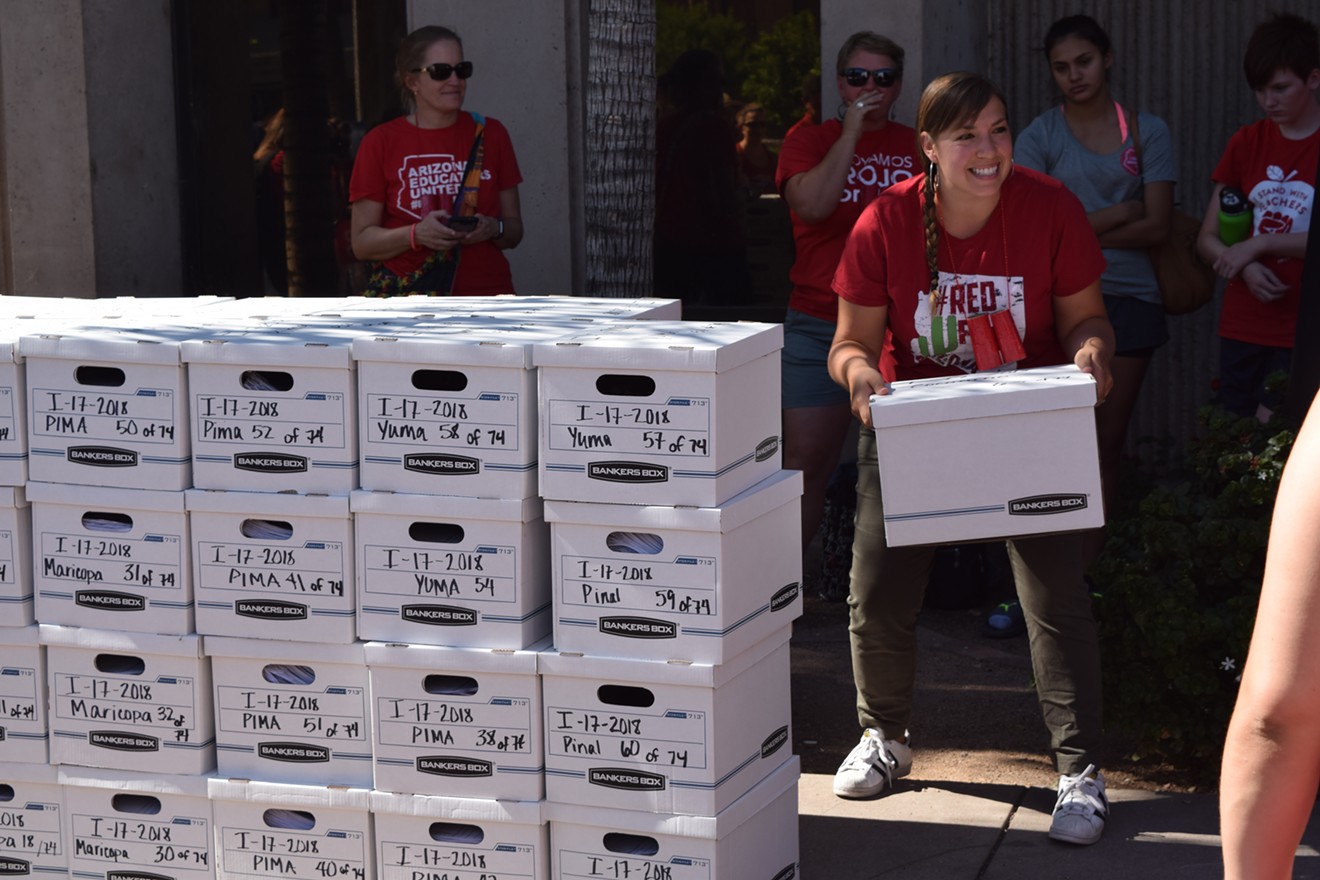On Thursday, Arizona educators behind the "Invest in Education Act" announced that they have collected enough signatures to send to the voters a school-funding measure that will raise taxes for people with above-average incomes.
Joshua Buckley, the chair of the committee and the president of the Mesa Education Association, announced that they collected 270,000 signatures — way more than the required 150,642.
“The #RedForEd movement is here to stay," he said. He called the signature-gathering effort "unprecedented," noting the short period of time between when they began collecting signatures and the July 5 deadline.
“Arizonans know that dedicated funding for public education is critical to the economic vitality of our state," Buckley said.
This spring, a grassroots group of teachers and the Arizona Education Association led a strike for larger salaries and school funding, setting up a dramatic showdown with the state Legislature and days of rallies at the Capitol.
Lawmakers passed a 20 percent teacher pay increase that was the brainchild of Governor Doug Ducey, but teachers walked away without a sustainable source of long-term school funding revenue. So days after the strike began, the Arizona Center for Economic Progress filed an initiative to raise income taxes.
If the ballot measure succeeds, the tax increases will break down like this: Individuals who earn more than $250,000 a year and households that earn more than $500,000 will see a 3.46 percent income tax increase. Meanwhile, individuals who earn more than $500,000 and households that earn more than $1 million will see a 4.46 percent increase.
The Invest in Education Committee says that the measure will raise $690 million annually and will apply to less than 1 percent of Arizona households.
These new tax dollars will go toward the state's classroom site fund, a primary source of Arizona state dollars that funds schools. Sixty percent of the new revenue from taxes would go to teacher base salary increases and 40 percent would go to maintenance and operations.
The Arizona Chamber of Commerce has denounced the measure, arguing that by targeting the wealthy, education dollars could disappear in a downturn.
Should this measure secure a spot on the ballot, we will oppose it strongly, and we will urge Arizona voters to do the same. https://t.co/feACEGBUSY
— Arizona Chamber (@AZChamber) April 27, 2018
But AEA President Joe Thomas told reporters at Thursday's press conference that the tax increase was crafted deliberately. Advocates conducted a year's worth of research, including online polling and phone calling, he said.
When asked about the fairness of applying an income tax on the wealthiest to pay for school funding, Thomas grew louder. "We're listening to the voters," he explained repeatedly.
“What’s not fair is we have the lowest-paid teachers in the nation," Thomas said. "What's not fair is we have underfunded and understaffed schools."
Thomas also alluded to the bareknuckle fight that lies ahead of the #RedForEd coalition. During the strike, teachers came under withering attacks from right-wing pundits and politicians. More than a few people, including a couple state lawmakers, attacked the teachers for being "socialists."
Whether the wealthiest people get on board with the initiative or not, the fight is going to be ugly.
“We will be attacked," Thomas said. "They will attempt to discredit us. They will say awful things because they want to keep the status quo.”












